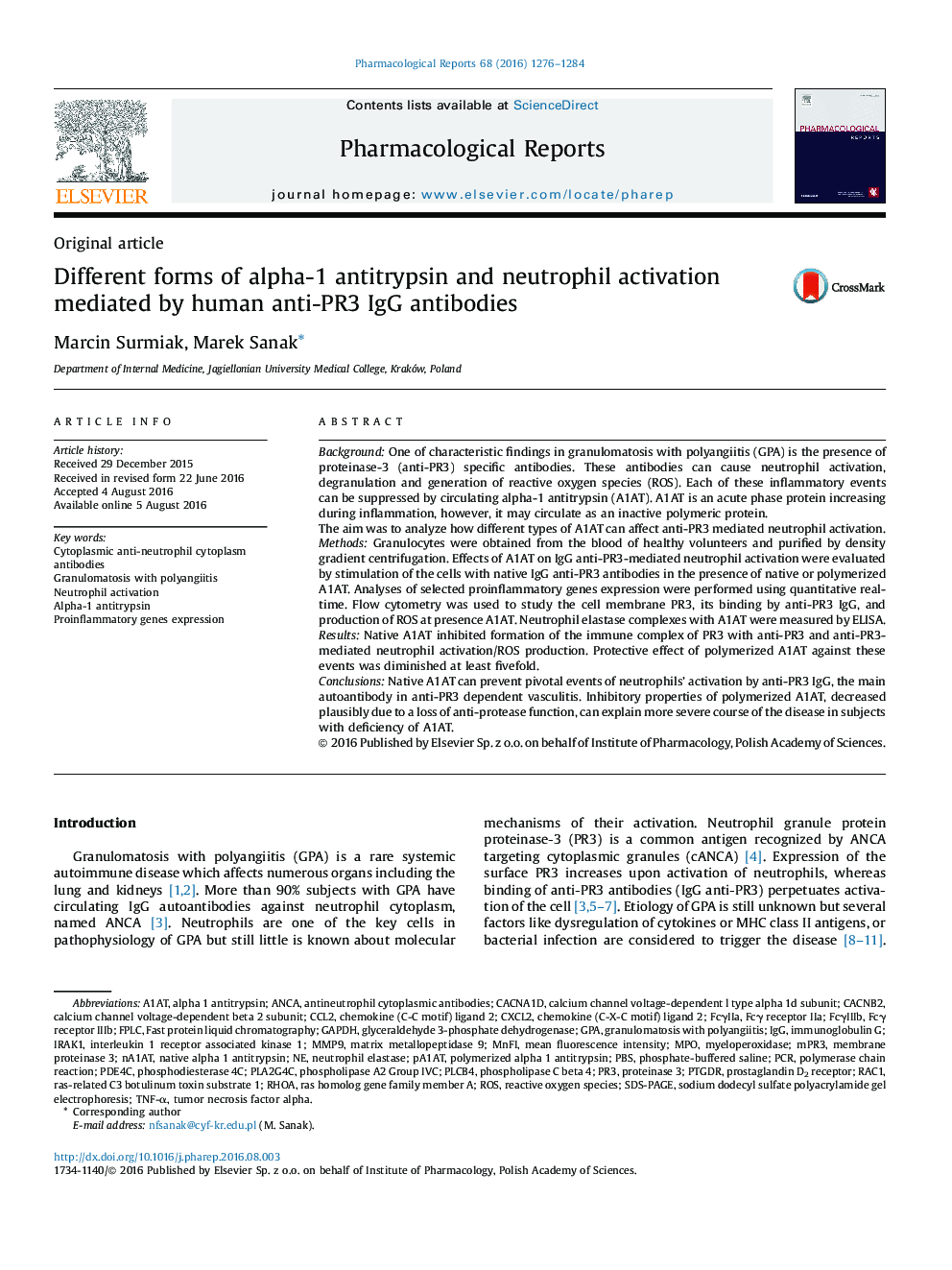| کد مقاله | کد نشریه | سال انتشار | مقاله انگلیسی | نسخه تمام متن |
|---|---|---|---|---|
| 6481725 | 1400743 | 2016 | 9 صفحه PDF | دانلود رایگان |

- Native alpha-1 antitrypsin can inhibit PR3/anti-PR3 interaction and genes activation/ROS production in cANCA stimulated granulocytes.
- Poor inhibition properties of polymerized A1AT are probably caused by loss of antiprotease activity by polymerized form of protein.
- Inhibition of cANCA mediated neutrophil activation by alpha-1 antitrypsin is connected with enzymatic activity of plasma expressed proteinase-3.
BackgroundOne of characteristic findings in granulomatosis with polyangiitis (GPA) is the presence of proteinase-3 (anti-PR3) specific antibodies. These antibodies can cause neutrophil activation, degranulation and generation of reactive oxygen species (ROS). Each of these inflammatory events can be suppressed by circulating alpha-1 antitrypsin (A1AT). A1AT is an acute phase protein increasing during inflammation, however, it may circulate as an inactive polymeric protein.The aim was to analyze how different types of A1AT can affect anti-PR3 mediated neutrophil activation.MethodsGranulocytes were obtained from the blood of healthy volunteers and purified by density gradient centrifugation. Effects of A1AT on IgG anti-PR3-mediated neutrophil activation were evaluated by stimulation of the cells with native IgG anti-PR3 antibodies in the presence of native or polymerized A1AT. Analyses of selected proinflammatory genes expression were performed using quantitative real-time. Flow cytometry was used to study the cell membrane PR3, its binding by anti-PR3 IgG, and production of ROS at presence A1AT. Neutrophil elastase complexes with A1AT were measured by ELISA.ResultsNative A1AT inhibited formation of the immune complex of PR3 with anti-PR3 and anti-PR3-mediated neutrophil activation/ROS production. Protective effect of polymerized A1AT against these events was diminished at least fivefold.ConclusionsNative A1AT can prevent pivotal events of neutrophils' activation by anti-PR3 IgG, the main autoantibody in anti-PR3 dependent vasculitis. Inhibitory properties of polymerized A1AT, decreased plausibly due to a loss of anti-protease function, can explain more severe course of the disease in subjects with deficiency of A1AT.
Journal: Pharmacological Reports - Volume 68, Issue 6, December 2016, Pages 1276-1284